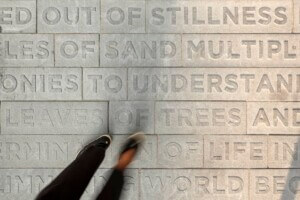Everyone may be a critic, but none moreso than Roger Ebert. While film has long been the Chicagoan’s preferred medium, he has increasingly cast his eyes and pen elsewhere on his Sun-Times blog (begun after a bout of thyroid cancer). Yesterday, he fixed his attention—and mostly scorn—on modern architecture. It’s a highly opinionated piece, one in which Ebert openly admits his increasingly “reactionary” preferences:
It was not always so. My first girlfriend when I moved to Chicago was Tal Gilat, an architect from Israel. She was an admirer of Mies. Together we explored his campus of the Illinois Institute of Technology. She showed me his four adjacent apartment buildings on Lake Shore Drive and said they looked as new today as when they were built. It is now 40 years later, and they still look that new. Then I was impressed. Now I think of it as the problem. They will never grow old. They will never speak of history. No naive eye will look at them and think they represent the past. They seem helplessly captive of the present.
Ebert goes on to bemoan the loss of character in Chicago and beyond, in buildings new and old. “Remember a deli, with its neon signs, its daily prices, its sausages and cheeses and displays of pop and wine in the window. Now it has been defaced and replaced by this branch of the Bank of America, which was not even conceived for this site, but offers as little glass and metal as it possibly can, devoid of any ornamentation at all.” Yet this seems much more like a problem with capitalism than architecture, not to mention that the latter has always been a product of the former, a reality of both the most grandiose and spare buildings. There’s long passages applauding Sullivan—and defaming Mies for denuding him, as Ebert sees it.
With all this praise for the past, is there anything he does like? Never having watched much Ebert ourselves, we always got the sense he was rather conventional. What does he think about Jean Gang’s Aqua or the compelling work of Krueck+Sexton? Surely it can’t all be bad, much as Ebert seems to be remembering the past a little too fondly, as there has been the good and the bad throughout history, architectural and otherwise. Over at the LA Times there’s a poll asking readers what they think of Ebert’s arguments. About a little more than a third say he’s being too simplistic, while the same amount find him to be right on the money. Whatever said you take (and we think we can guess what that is) it’s still a thoughtful, if disagreeable piece, and well worth reading.










